If your sink is overflowing with water what is the first thing you do? Mop up the floor? Scoop up the water? Or turn off the tap?
The obvious answer is the last one, and this is the situation the world is currently facing with plastic.
To truly turn off the tap on plastic we need to stop its production in the first place, and that’s why we’re going after Nestlé. As one of the largest consumer goods companies globally, with yearly sales of about $90 billion, Nestlé has a big role to play in curbing its plastic production. That’s why at its Annual General Meeting today, Greenpeace activists crashed the event to confront executives with the company’s throwaway plastic found polluting the world’s oceans.
Greenpeace International Executive Director, Jennifer Morgan, urged Nestlé executives and shareholders to show true leadership to solve the plastic pollution crisis. Want to know what she said?
Read below:
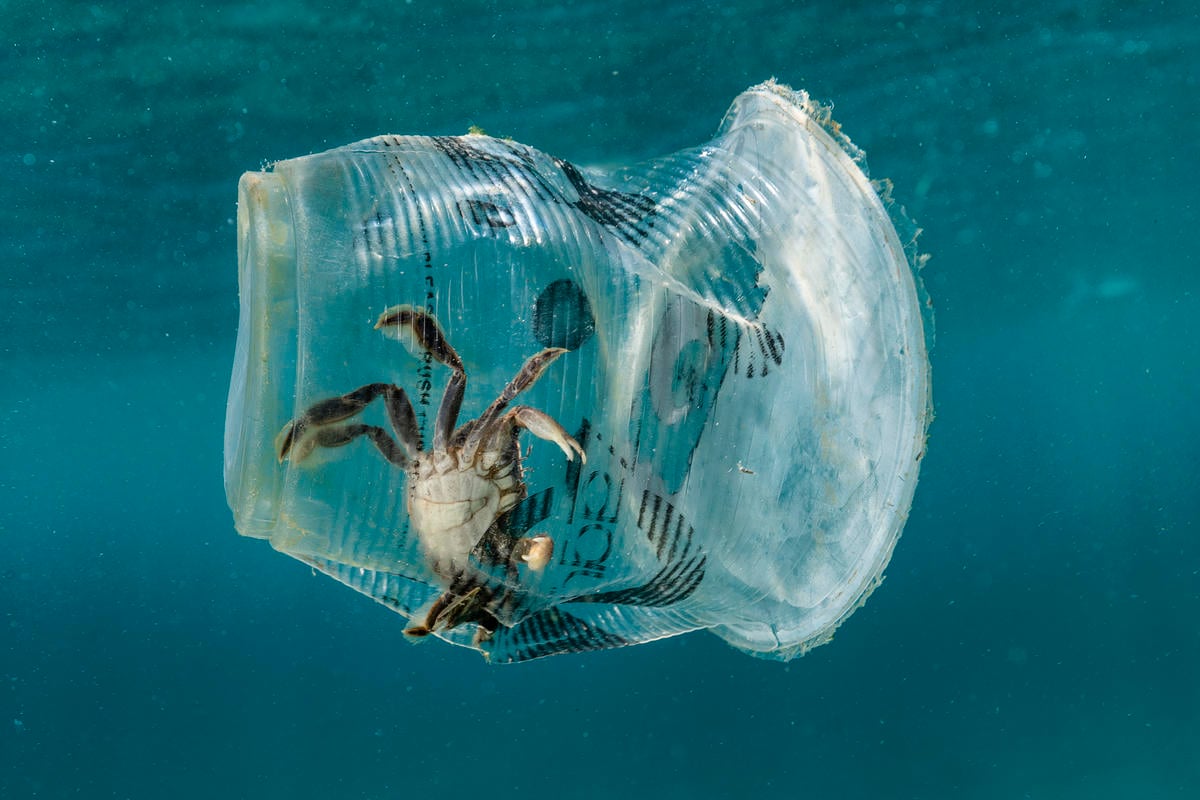
A crab was trapped inside a discarded Zagu milktea cup in Verde Island Passage
You all know the real world images – plastic packaging strangling sea turtles, trapping birds and blocking up the bellies of dead whales.
Plastic is choking our rivers and oceans, filling landfills, being burned into toxic emissions and trashing our communities, particularly visible in Southeast Asia.
Plastic pollution is an environmental disaster. It’s a sign that something is broken and a signal that our current throwaway economic system, based on endless consumption and disposability at any cost, cannot continue.
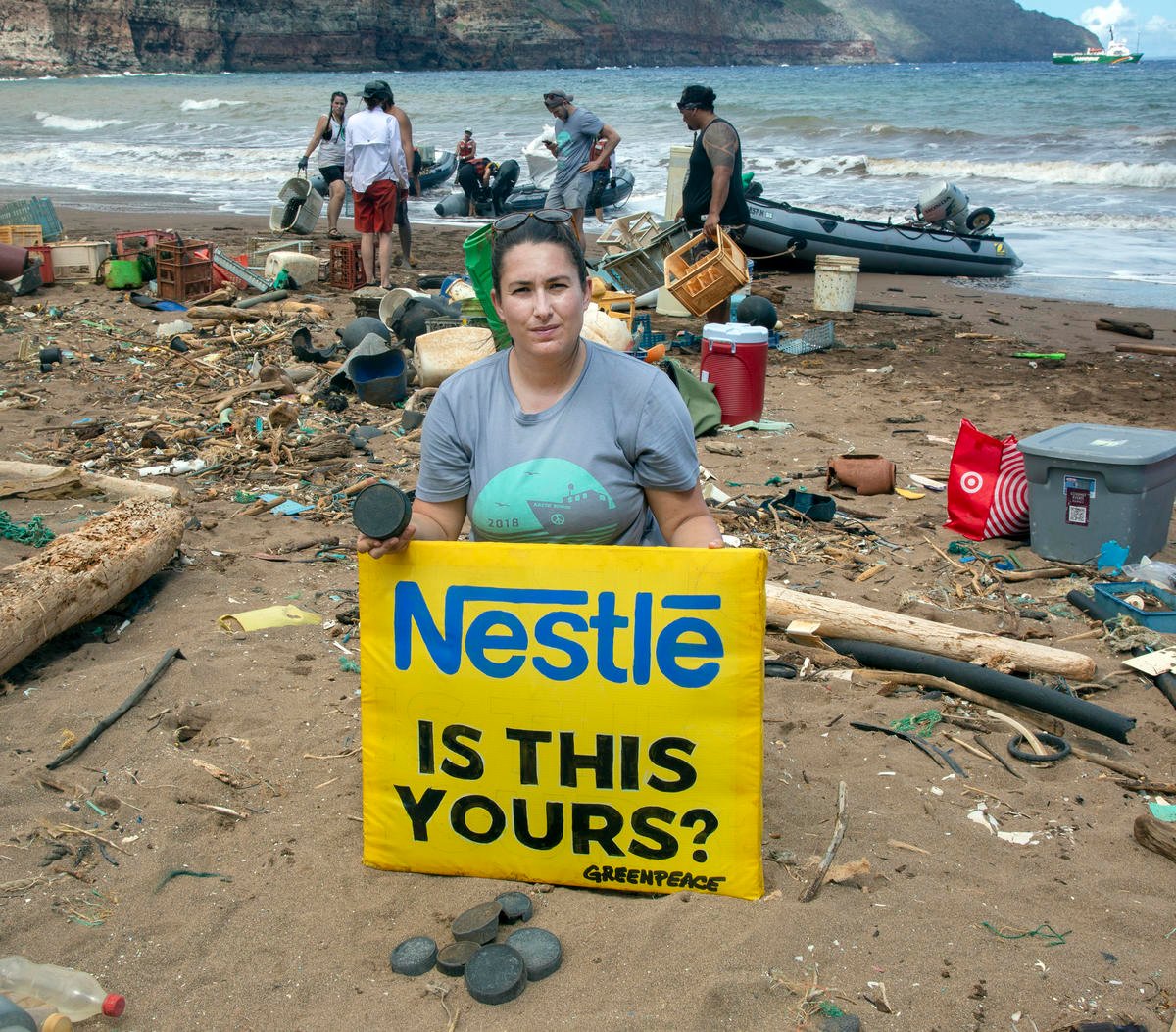
Greenpeace partnered with the Protect Kaho’olawe ‘Ohana (PKO) and Kaho’olawe Island Reserve Commission (KIRC) to do a beach cleanup and brand audit at Kanapou beach on Kaho’olawe Island, Hawaii.
Last September, together with our allies in the Break Free From Plastic movement, we named Nestlé as one of the top companies whose plastic packaging was found polluting beaches, waterways and communities across six continents.
We know where plastic ends up: we can see that with our own eyes. Now millions of people around the world are realising where lots of it originates – from Nestlé.
Plastic starts as toxic petrochemicals and has already entered our food, water supply and bodies. Scientists are publishing studies on the potential human health hazard of plastic and are beginning to understand the massive implications. But people are demanding this problem is fixed now, without delay.
Yet last year, Nestlé produced a whopping 1.7 million tonnes of plastic packaging — a 13% increase on the year before.
Nestlé should be worrying about the growing public concern over its plastic pollution, as more and more people understand your role in this crisis.
This is an opportunity to show leadership in tackling this global catastrophe, something you have stated as being your goal — to be a leader in this field.
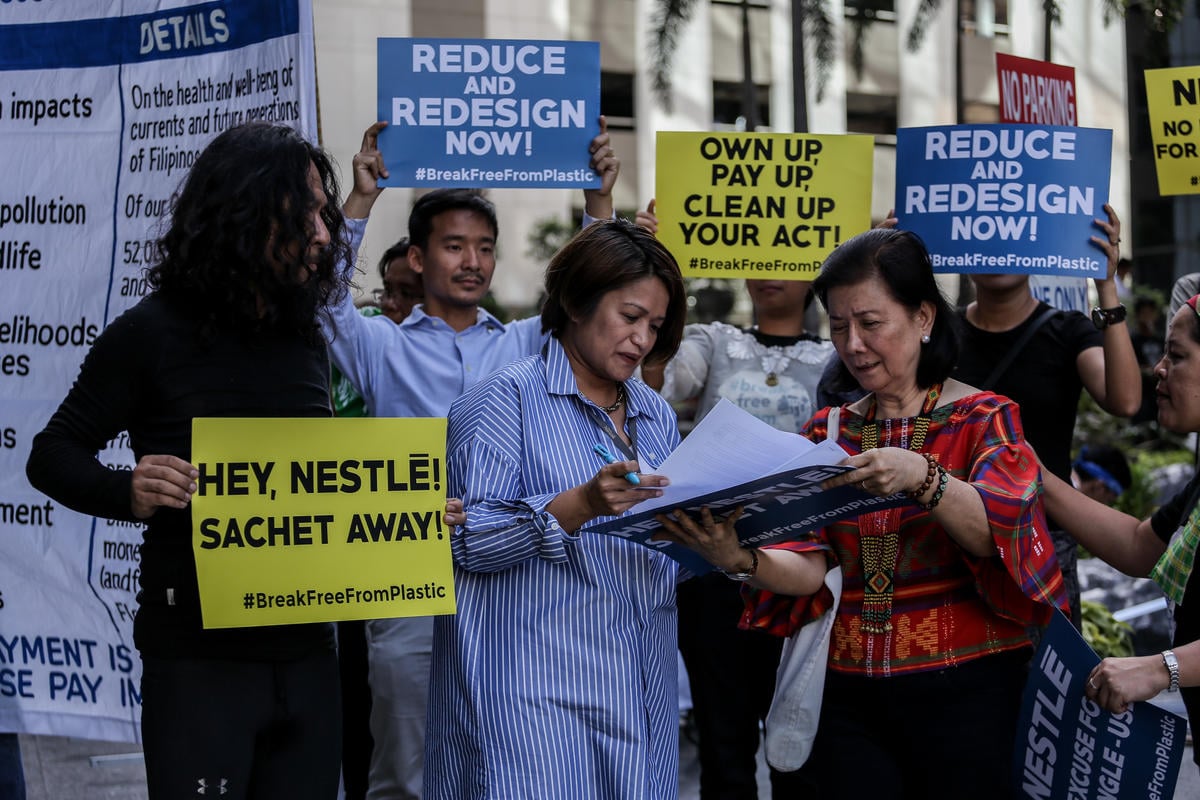
Ms. Christine Ponce Garcia, Corporate Affairs Executive of Nestle Philippines (Middle) receives a demand letter and “invoice from the Filipino people” outlining the costs of Nestlé’s single-use plastic packaging
However, leadership does not mean substituting plastic with another single-use material like paper or bioplastic, which will shift the destructive impacts of the throwaway culture to the world’s forests and agricultural lands, or perpetuating the myth that recycling will fix the plastic disaster.
True leadership means confronting head on the throwaway culture that underpins Nestlé’s current business model.
It means moving to truly sustainable packaging solutions — alternative delivery systems that focus on refill and reuse.
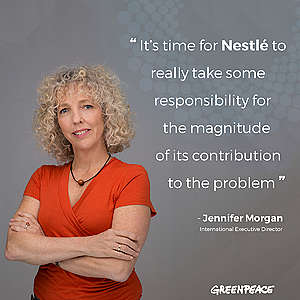 It means being transparent about your plastic footprint. It means immediately committing to ‘peak’ single-use plastic production and use, and establishing targets for the reduction of total single-use packaging units as a central goal of your strategy.
It means being transparent about your plastic footprint. It means immediately committing to ‘peak’ single-use plastic production and use, and establishing targets for the reduction of total single-use packaging units as a central goal of your strategy.
It is simply not acceptable for a company to produce hundreds of billions of plastic items every year that are used for a few seconds and then left to poison our communities, food chains and ecosystems for generations.
So the question is clear: will Nestlé rise to real leadership or will you dig in to protect an outdated, destructive business model that has negative consequences for all of us?
Greenpeace will continue to pressure you to take your part of the responsibility for the comprehensive systems change required, to invest in innovation and lead the way towards a more just and sustainable future.
People are watching.
Jennifer Morgan is the Executive Director of Greenpeace International
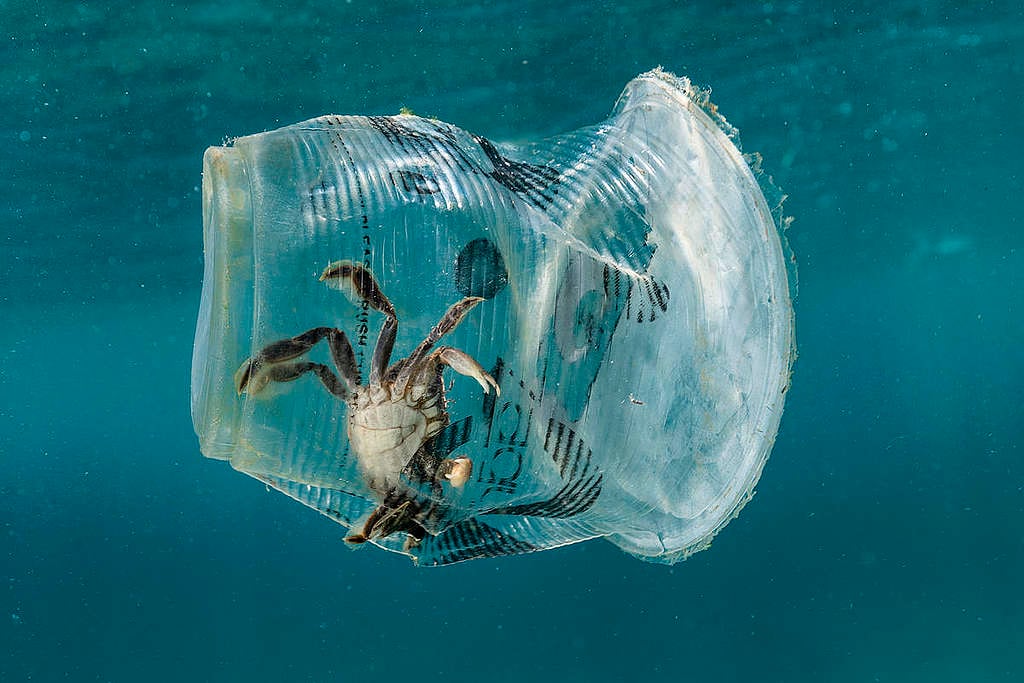
Ask world leaders to support a strong global plastic treaty that addresses the whole life cycle of plastic.
